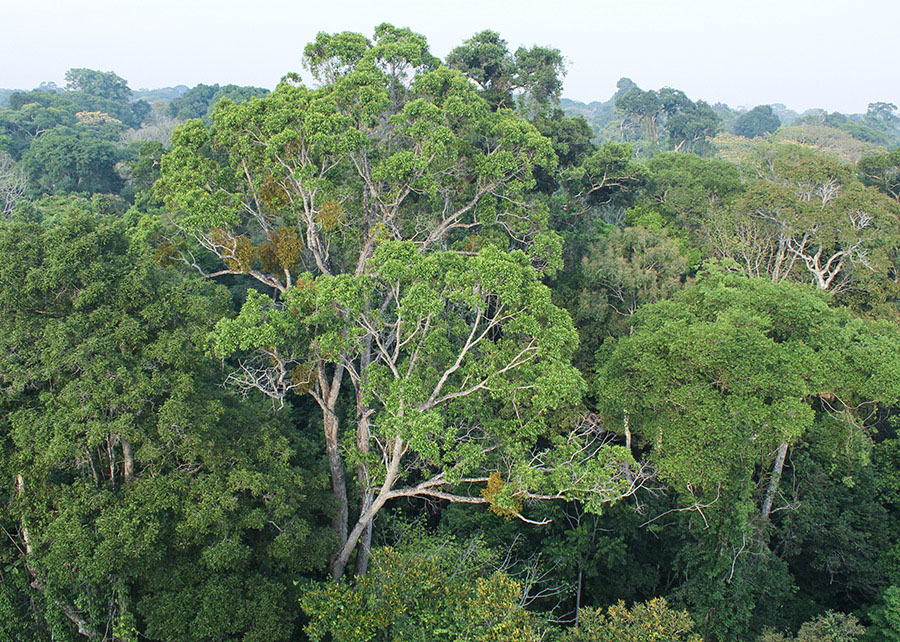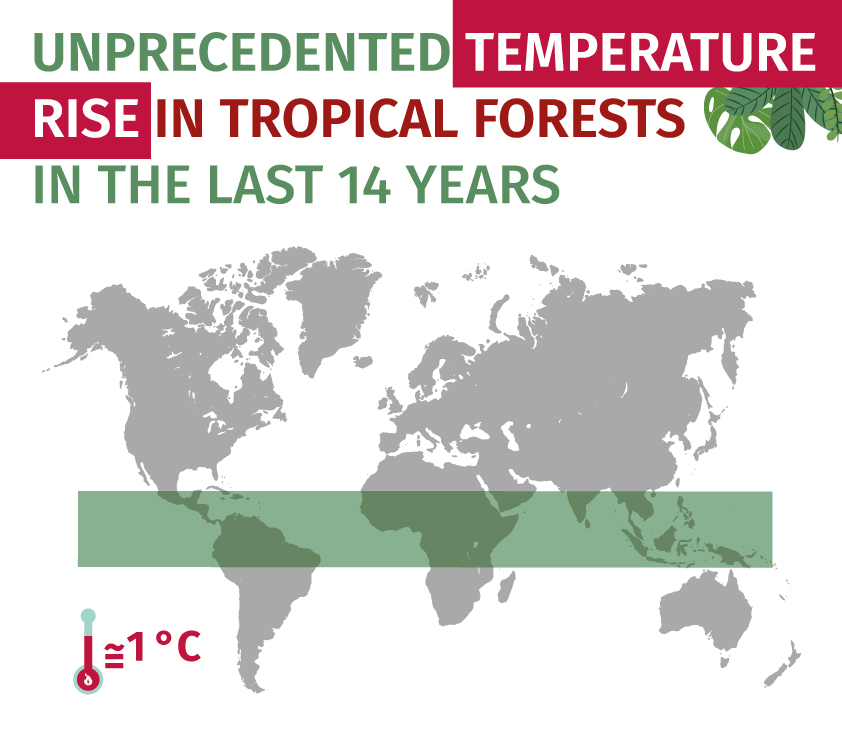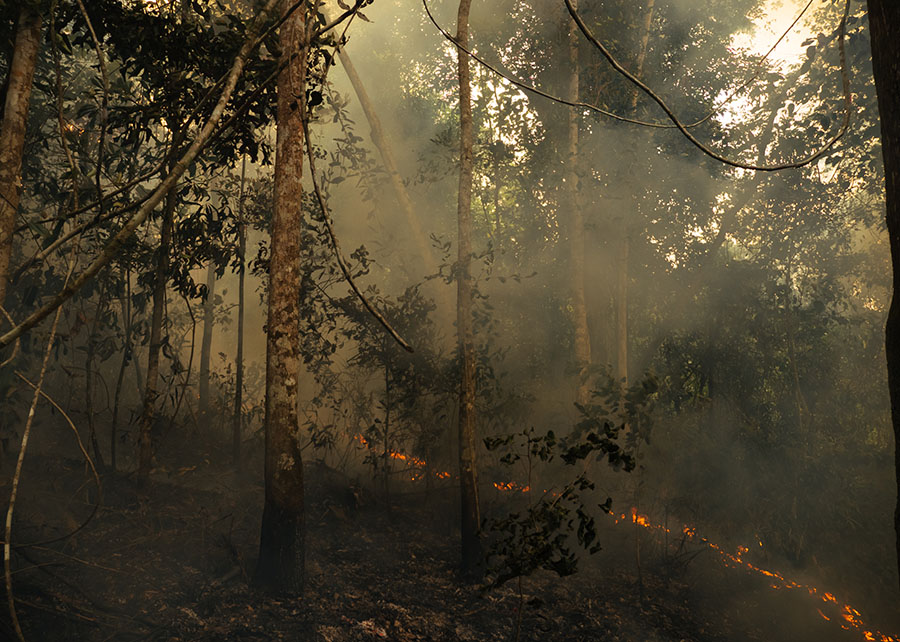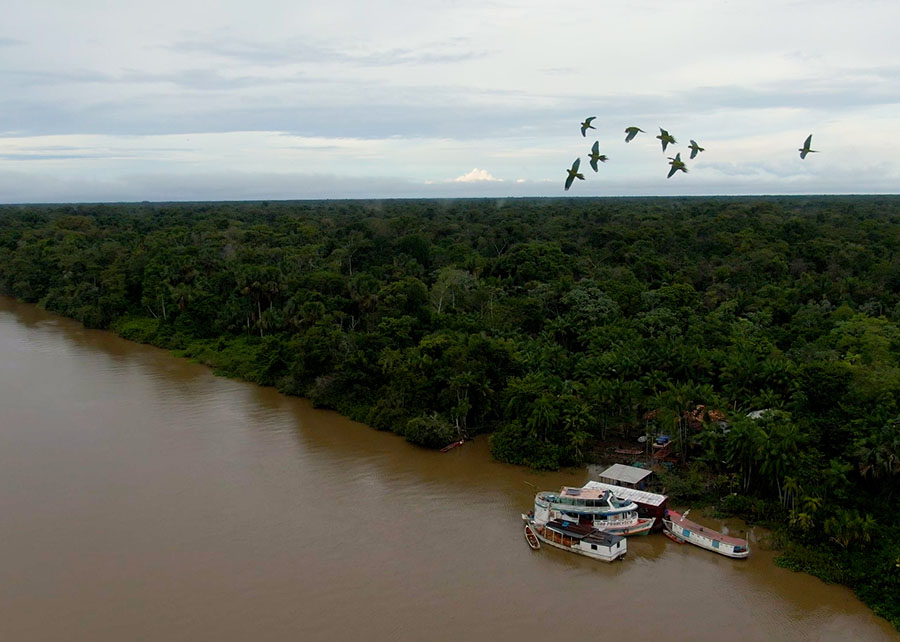Tropical forest temperatures are rising, says study in Nature Climate Change
Tropical forest temperatures are rising, says study in Nature Climate Change
Photo: Alexander Lees

Even the world's most conserved tropical forests show climate change due to global warming
|
Tropical forests around the world, even the most conserved ones, already show climate changes due to global warming. The finding comes from a microclimate modeling study that analyzed the average temperature in approximately 9 million square kilometers inside forest areas over the last thirty years.
The study published as the paper "Novel temperatures are already widespread beneath the world’s tropical forest canopies" on the journal Nature Climate Change was authored by Brazilian and foreign researchers, and resulted from the analysis of microclimate records and field research data from 300,000 collection points across the global tropics, including Brazil, Peru, Uganda, the Democratic Republic of Congo, and Malaysia.
The work is based on research data by the Sustainable Amazon Network (RAS, from the acronym in Portuguese), an international multidisciplinary collective that researches land use sustainability, involves over 30 research institutions, and is co-coordinated by Embrapa Eastern Amazon.
The research group quantified hourly below-canopy temperature (practically on the forest floor - 5 cm above the ground) between 1990 and 2019 in all tropical forest regions of the world. The finding was that the temperature regime in the last 14 years (2005 - 2019) is outside the range in the historical baseline period (1990 - 2004).
The majority of the world's undisturbed tropical forests not only experienced climate conditions at least partially outside the range of baseline historical averages, but also many of them transitioned to almost entirely novel climatic averages, according to analysis results. Such areas include globally important national parks, indigenous reserves, and large tracts of ecologically unfragmented areas.
“Our study challenges the prevailing notion that tropical forest canopies will mitigate the impacts of climate change and helps us understand how to effectively prioritize the conservation of such key areas of biodiversity,” states Alexander Lees, a researcher at Manchester Metropolitan University (UK) and co-author of the paper. Temperature is an important factor in species distributions and ecological function, according to the experts.
Latin America, especially in the southern Amazon and the Andes, experienced the highest overall change in terms of cumulative temperature, mean annual temperature, mean diurnal temperature range, and temperature seasonality. In the continent, of which the Amazon biome is an important part, 27% of undisturbed forest has had entirely novel regimes in mean annual temperature and 31% has experienced entirely new mean diurnal temperature ranges. The main causes of such change include, at the global level, the burning of fossil fuels, and in the Amazon, deforestation and forest fires, as the experts point out.
Conserving and restoring tropical forests
Until recently, temperatures inside forests remained stable, which means that the biodiversity present in such areas evolved over a narrow range of temperatures. Changes in forest microclimate can thus directly impact local biodiversity and the ecological function of the areas.
Tropical forests are the world's most diverse terrestrial ecosystems, hosting over 62% of vertebrate species and over 75% of flowering plant species, the article states. “Those forests, which are home to many of the world's highly specialized species, are particularly sensitive to even the slightest climate changes. In order to provide species with the best opportunity to adapt to changes, forests have to be conserved and protected from human action,” asserts Brittany Trew, a researcher at the Universidaty of Exeter (UK) and first author of the study.
The changes, according to the study, were more exacerbated in the most conserved forest areas in comparison with fragmented forests and degraded forests. “The most fragmented areas are more ‘resistant’ to climate variations,” explains Joice Ferreira, a researcher at Embrapa Eastern Amazon.
In fragmented forests, especially in Africa, the researchers found that climate change had little effect on average temperatures. Those sites should be considered climate refugia and are crucial to restoration and conservation efforts, the experts recommend. The scientists noted that large areas in the Amazon are also important climate refugia.
For Alexander Lees, in addition to the urgent need for global carbon emission reduction, “the prioritization and protection of refugia and the restoration of highly threatened forests are vital to mitigate further damage to global tropical forest ecosystems”, he underscores from the paper.
"The data from the work provide new evidence of climate change on a global scale, including the Amazon. These are changes that entail a cascade effect of biodiversity loss and global warming as the integrity of our forests is diminished. Such evidence, combined with the human losses we have been experiencing given the floods in Rio Grande do Sul, invites us to change our approach to the problem. It is time to talk about it extensively in our daily lives. It is time to change our ways of living and act on the problem", Joice Ferreira concludes.
Pictures along the text: Adam Roman (forest fire) and Vinícius Braga (flooded forest)
Ana Laura Lima (MTb 1.268/PA)
Embrapa Eastern Amazon
Press inquiries
amazonia-oriental.imprensa@embrapa.br
Phone number: +55 91 99110-5115
Translation: Mariana Medeiros (13044/DF)
Embrapa's Superintendency of Communications
Further information on the topic
Citizen Attention Service (SAC)
www.embrapa.br/contact-us/sac/



